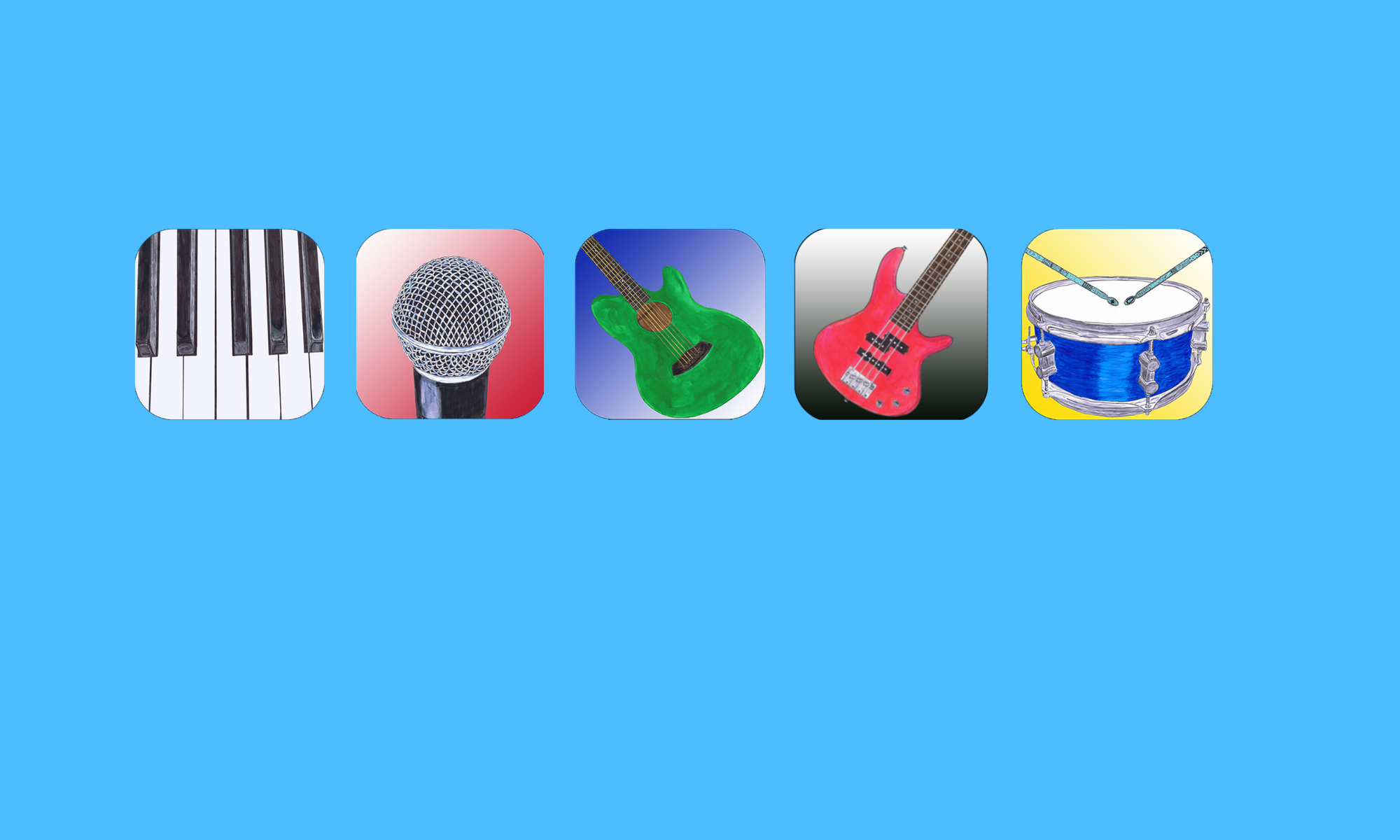Part 1 – Introduction to Reading Piano Notes
- Music uses the alphabet from A-G over and over.

- Notes and symbols are put on the staff
 to tell you what to play.
to tell you what to play.
- A treble clef
 on the staff shows to play notes in the high area of the piano.
on the staff shows to play notes in the high area of the piano.
A bass clef  on the staff shows to play notes in the low area of the piano.
on the staff shows to play notes in the low area of the piano.
- Each line and space on the staff stands for a note on the piano
 LINE NOTE: Note goes on the line like a marshmallow on a stick or a bead on a string.
LINE NOTE: Note goes on the line like a marshmallow on a stick or a bead on a string.
The line goes through the middle of the note.
 SPACE NOTE: Note goes in the space between two lines.
SPACE NOTE: Note goes in the space between two lines.
The lines touch the bottom and/or top of the note.
- What kind of note is used
 tells how long to hold it creating the rhythm.
tells how long to hold it creating the rhythm.
Worry about correct notes first, then add rhythm later.
(See “Understanding Rhythm is a piece of cake” and “Adding Rhythm”)
- Put your right hand in Middle C position. (One finger on each key.)
Look for the set of two black keys under the piano or keyboard label.

- Put flash cards on music stand in C, D, E order.

Start with only three notes. When you introduce too many notes at a time it takes much
longer to master them. This doesn’t mean you can’t learn to play harder pieces right away but practice reading skills by adding small note regions at a time.
(pdf of flash cards below)
- Quiz on notes C, D, E in right hand. Play and say the notes in order, then out of order.
- Have someone point to flash cards randomly to help you quiz.
- Rearrange the cards in different order and play them.
- Use ‘Piano Notes Pro’ app on the ipad set to just notes C, D, & E.
- Use information to play songs until notes are mastered before adding new notes.
(9 songs using C, D, & E available in “Treblemakers Piano Method Primer A”)
pdf of first C, D, E song below
How to Know When Information is Mastered
If you can come back to information fresh (not having just used it) and you still know it inside and out, it is mastered. It can seem like you know something well while you’re working with it because the information is stored in your working memory. Working memory is temporary memory that allows you to do something in the present and is not designed to hold memories for long periods of time. However, if you revisit the information at regular intervals over time, this tells your brain you’ll need to keep the information causing it to be stored in long term memory. Because of this, doing a little everyday is much more effective (and easier) than trying to do long practices only once or twice a week.
Learn more about Piano Lessons in Park Slope when you fill out the contact us form and Don’t forget to look for Part 2 of our introduction to Piano!

